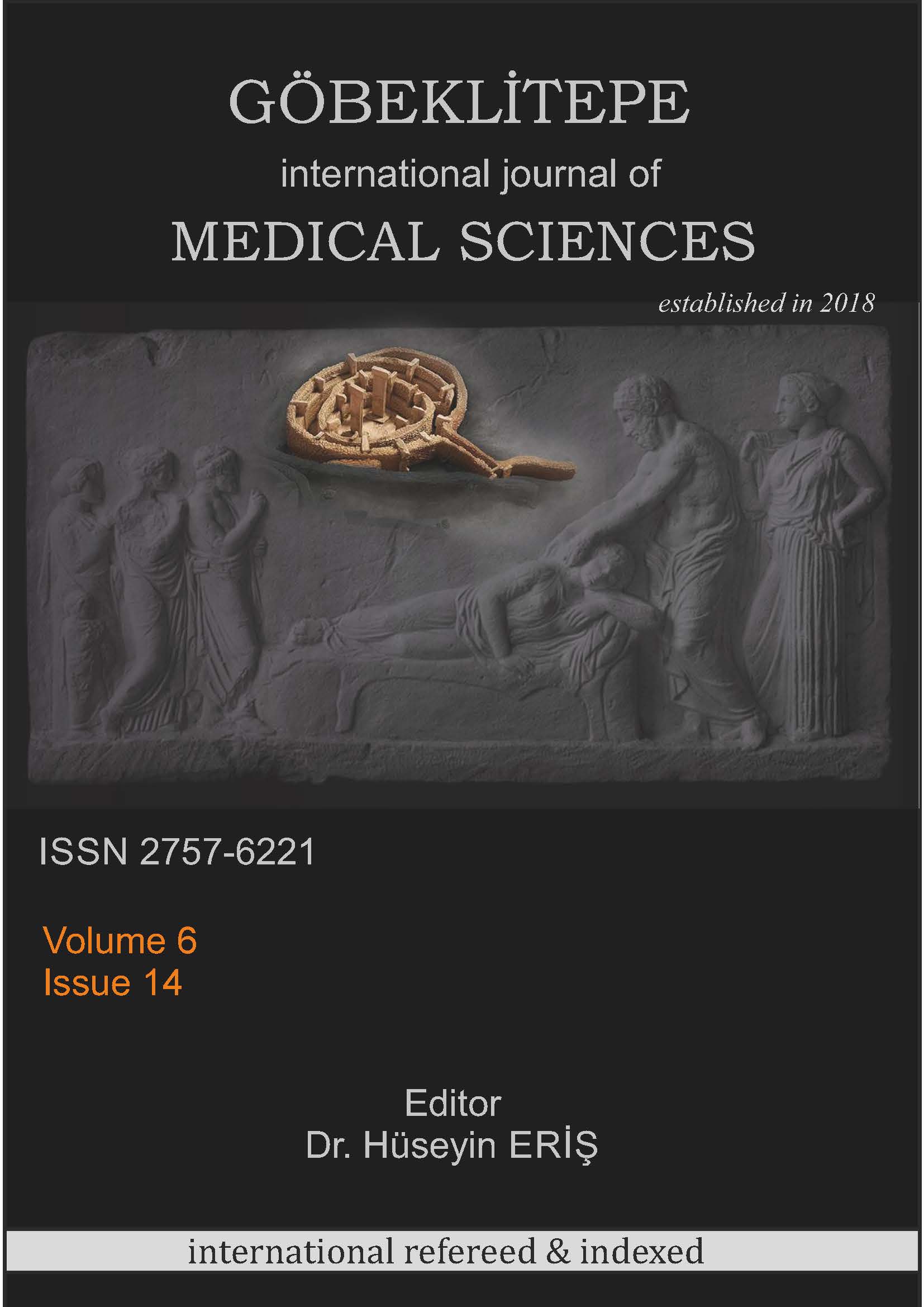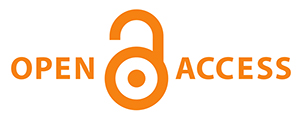İlkokul Öğrencilerini COVID-19 Hastalığından Korumak İçin Teknolojik Bir Yaklaşım: Sağlığı Geliştirme Modeli ve Animasyon Destekli Eğitim Kombinasyonu
DOI:
https://doi.org/10.55433/gsbd.251Anahtar Kelimeler:
Animasyon Destekli Eğitim, COVID-19, Sağlıklı Yaşam, Okul Çağı ÇocuklarıÖzet
Tüm dünyayı etkisi altına alan koronavirüs hastalığı 2019 (COVID-19) salgını ve buna bağlı mutasyonlar küresel olarak artmaya devam ediyor. Bu kriz okul çağındaki çocukların yaşam kalitesini olumsuz etkiliyor. Bu çalışma, COVID-19 hastalığından korunmak için ilkokul çağındaki öğrencilere verilen sağlığı geliştirme modeline dayalı animasyon destekli eğitimin etkisini belirlemeyi amaçlamaktadır. Çalışma Şubat-Nisan 2022 tarihleri arasında deneysel araştırma kriterlerine uygun olarak ön test, son test ve tekrar test kontrol gruplu olarak gerçekleştirilmiştir. Örneklem, çalışmanın yürütülmesi için uygun görülen iki okulda 4. sınıfta öğrenim gören 148 öğrenciden oluşmaktadır. Veriler, veri toplama materyalleri, Tanımlayıcı Anket ve Genel Çocuk Yaşam Kalitesi Ölçeği kullanılarak toplanmıştır. Araştırmaya katılan tüm öğrencilerin yaş ortalaması 10.53±2.60'tır. Öğrencilerin %36,0'sının daha önce COVID-19 ile ilgili herhangi bir eğitim almadığı, %32,4'ünün COVID-19 hastalığından korunmak için önlem almadığı, %48,4'ünün ise yeterli önlem alınsa bile COVID-19 hastalığından korunmasının mümkün olmadığı tespit edilmiştir. Deney grubundaki öğrencilerin yaşam kalitesi ölçeği ön-test, son-test ve tekrar-test puan ortalamaları arasındaki farkın istatistiksel olarak anlamlı olduğu bulunmuştur (p<.05). Yaşam kalitesi ortalamasının eğitimden hemen sonra arttığı ancak bir ay sonraki ölçümlerde azaldığı tespit edilmiştir. Okul çağındaki çocuklara verilecek eğitim animasyon destekli programlarla geliştirilmelidir.
Referanslar
Güngörer F. (2020). Impact of COVID-19 on societal institutions. Yuzuncu Yıl University, Inst Soc Scie J, ( Special Issue of Epidemics), 393–328.
Ministry of Education, Turkey. Announced the precautions taken in the field of education against the coronavirus [homepage on Internet]. 2020 cited 2020 July 17. Available from: https://www.meb.gov.tr/bakan-selcuk-koronaviruse-karsi-egitimalaninda-alinan-tedbirleri-acikladi/haber/20497/tr,web
Sarı, E., Sarı, B. (2020). Education management in times of crisis: the case of COVID-19. Int J of Leadership Stud: Theory and Practice, 3, 49–63.
Ministry of Education, Turkey. After the epidemic, school adjustment guide and activities were prepared [homepage on Internet]. 2020 cited 2020 August 17. Available from: http://ttkb.meb.gov.tr/www/salgin-sonrasi-okula-uyum-kilavuzu-ve-etkinlikler-hazirlandi/icerik/390
Aslan Efe, H. (2015). The effects of animation supported environmental education on achievement, retention of ecology and environmental attitude. J Comput Educ Res, 3(5), 30.
Cheng, Y.J., Ray, D.C. (2016). Child-centered group play therapy: impact on social-emotional assets of kindergarten children. J Spec Group Work, 41:209–37.
Matheson, E.L., Lewis-Smith, H., Diedrichs, P.C. (2020). The effectiveness of brief animated films as a scalable micro-intervention to improve children’s body image: a randomised controlled trial. Body Image, 35, 142–153.
Choi, K.R., Skrine Jeffers, K., Cynthia Logsdon, M. (2020). Nursing and the novel coronavirus: risks and responsibilities in a global outbreak. J Adv Nurs, 76(7), 1486–7.
Koç, Z., Kızıltepe Keskin, S., Çınarlı, T., Şener A. (2017). Use of theories in nursing practice, research, management and education. Education in Nurs and Res, 14(1), 62–72.
Pender, N. (2011). The Health promotion model. 18.
Ravens-Sieberer, U., Bullinger, M. (1998). Assessing health-related quality of life in chronically ill children with the German KINDL: first psychometric and content analytical results. Qual Life Res Int J Qual Life Asp Treat Care Rehabil, 7(5), 399–407.
Eser, D.E., Yüksel, D.H., Baydur, H., Erhart, M., Saatli, G., Özyurt, Cengiz B., et al. (2008). The psychometric properties of the new turkish generic health-related quality of life questionnaire for children (Kid-KINDL). Turkish J of Psychiatry, 4(9), 409 - 417.
Bahar, Z., Açil, D. (2014). Health promotion model: conceptual structure. E-J Dokuz Eylul University Nursing Faculty. 2014;7(1), 59–67.
Nobari, H., Fashi, M., Eskandari, A., Villafaina, S., Murillo-Garcia, A., Pérez-Gómez, J. (2021). Effect of COVID-19 on health-related quality of life in adolescents and children: a systematic review. Int J Environ Res Public Health, 18(9), 4563.
Pakpour, A.H., Chen, C.Y., Lin, C.Y., Strong, C., Tsai, M.C., Lin, Y.C. (2019). The relationship between children's overweight and quality of life: a comparison of Sizing Me Up, PedsQL and Kid-KINDL. Int J Clin Health Psychol, 19(1), 49–56.
Lee, C.T., Lin, C.Y., Tsai, M.C., Strong, C., Lin, Y.C. (2016). Psychometric evaluation and wording effects on the Chinese version of the parent-proxy Kid-KINDL. Health Qual Life Outcomes, 14, 1.
Adıbelli, D., Sümen, A. (2020). The effect of the coronavirus (COVID-19) pandemic on health-related quality of life in children. Child Youth Serv Rev, 119, 105595.
Gümüşoğlu, E.K. (2017). Digital conversion in higher education. Open Education Applications and Res J, 3(4), 30–42.
Özdemi̇r, C., Şendi̇r, M. (2020). Mobile health applications and change of health behavior. J Health Scie, 29(3), 210–216.
Benzing, V., Gaillard, P., Scheidegger, D., Dössegger, A., Nigg, C.R., Schmidt, M. (2022). COVID-19: Physical activity and quality of life in a sample of swiss school children during and after the first stay-at-home. Int J Environ Res Public Health, 19(4), 2231.
Widyaningsih, V., Mulyani, S., Pamungkasari, E.P., Mashuri, Y.A., Aryoseto, L., Probandari A.N., et al. (2021). Online traditional dance community and children’s mental health: lesson learned during Covid-19 pandemic. Advances in Social Sci, Education and Humanities Res, 145, 14.
Kandır, A., Orcan, M. (2011). A Comparative study into early learning skills of five-six-year old children and their social adaptation and skills. Ilk Online, 1(10), 40-50.
Gündüz, H.B., Özarslan, N. (2017). School maturity of students’ starting school at different age periods and their school adaptation problems according to teachers’ views. Bolu Abant Izzet Baysal University J Faculty of Education, 17(1), 212–230.
İndir
Yayınlanmış
Nasıl Atıf Yapılır
Sayı
Bölüm
Lisans
Telif Hakkı (c) 2024 Göbeklitepe Sağlık Bilimleri Dergisi

Bu çalışma Creative Commons Attribution 4.0 International License ile lisanslanmıştır.




